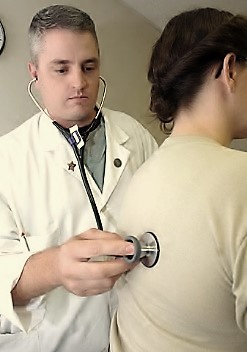 Texas has more female Veterans than any other state. According to the Department of Veterans Affairs (VA), as of October 2, 2015, Texas is represented by 180,286 women Veterans. While VA and the Texas Veterans Commission (TVC) offer health, counseling, and other programs designed to meet the unique needs of our Nation’s women Veterans, women Veterans often feel like – and are – “invisible” when it comes to VA disability benefits and healthcare.
Texas has more female Veterans than any other state. According to the Department of Veterans Affairs (VA), as of October 2, 2015, Texas is represented by 180,286 women Veterans. While VA and the Texas Veterans Commission (TVC) offer health, counseling, and other programs designed to meet the unique needs of our Nation’s women Veterans, women Veterans often feel like – and are – “invisible” when it comes to VA disability benefits and healthcare.
The fact of “invisibility” for VA disability benefits and healthcare is especially concerning because women represent approximately 10-percent of the U.S. Veteran population. Moreover, the number of female Veterans is expected to rise -even though the overall population of Veterans is likely to decline. This means more services, not fewer, must be made available for our Nation’s women Veterans.
Common Service-Connected Ailments Affecting Women Veterans
What are the most common service-connected physical health problems reported by Women Veterans? As described by VA itself, they are:
- Back trouble, arthritis, and muscular alignments (from carrying equipment and loads);
- Digestive illnesses and urinary problems (from deployment-related sanitary conditions); and
- Loss of sight;
- Shrapnel injuries;
- Amputations;
- Traumatic brain injury; and
- Paralysis
Loss of sight, shrapnel injuries, amputations, traumatic brain injury, and paralysis are especially common for women Veterans who served in Iraq and/or Afghanistan. Note that these are only the most common service-connected disabilities reported to VA. Since the majority of women Veterans (possibly as high as 87%) DO NOT use VA healthcare services, the number of service-connected disabilities for women Veterans is obviously under-reported. Common service-connected issues that don’t even make VA’s list, such as foot and knee problems resulting from wearing heavy boots, can have devastating long-term impacts on mobility and overall health.
Shortcomings in VA Services for Women Veterans
Lack of staff expert in medical conditions faced solely or primarily by women Veterans doesn’t even begin to address the access-to-medicine challenges faces disproportionately by women Veterans. Access to child care so women Veterans can go to their C&P examinations without the distraction of children is crucial. In many cases, it simply is not possible or wise for a woman Veteran to candidly discuss her health issues with the C&P examiner if a child is present. Women Veterans also face physical and psychological trauma challenges that are in no way the same as those which present for their male counterparts. In addition to all these difficulties, women Veterans must deal with significant discrimination in assessment of their disability claims. VA’s own Office of Inspector General notes that VA’s Veterans Benefits Administration (VBA) “denied female veterans’ disability claims for PTSD more often” than PTSD disability claims from men.
VA Medical Centers Are Not Required to Have a Full-time Obstetrician or Gynecologist on Staff
As another example of the service shortcomings in VA healthcare for women Veterans, not all VA medical centers have a full-time obstetrician or gynecologist. On March 13, 2015, H.R. 1356 “Women Veterans Access to Quality Care Act of 2015” – a law to remedy this situation – was introduced in Congress. This means, as of today, there is no requirement that VA medical centers maintain medical staff for health matters unique to women Veterans. In fact, apparently it will take an act of Congress to ensure that VA’s medical centers have at least one full-time obstetrician or gynecologist on-site to treat women Veterans.
Women Veterans Face Unique Medical Challenges
Women Veterans – we hear you. How can your disability claims possibly be addressed thoroughly, fairly, and competently if VA doesn’t staff itself with medical professionals who have technical competency in women’s health issues? How many women Veterans need to suffer from service-connected fibromyalgia caused by exposure to burn pits and toxins from overheated plastic water bottles before this condition is acknowledged? How many women Veterans will experience the life-long pain of a child born with disabilities caused by service-connected exposure to birth-defect-inducing poisons ingested or inhaled as a result of military service?
Without medical professionals who are sympathetic to and actually skilled in diagnosis and treatment of physical and psychological disabilities suffered by women Veterans, it simply is not possible for your claims to be fairly handled.
Don’t be discouraged. If you are a woman Veteran, you are entitled to have your disability claims fairly reviewed and adjudicated. If your claims have been denied, now is the time to obtain assistance and level the playing field between you and VA. You don’t and shouldn’t have to go up against a huge bureaucracy alone. If you need assistance, contact a VA-accredited attorney who knows the system.
Women Veterans – are you receiving all the benefits to which your service entitles you? If you have doubts, there’s good news. By taking prompt, early action, you are in the best position to maintain or improve your benefits situation. DON’T WAIT. Contact the Law Office of Robert B. Goss, P.C. today for your FREE consultation.
 Military Veterans' Lawyer Blog
Military Veterans' Lawyer Blog


